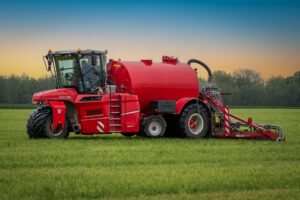The Roots of Russian Agricultural Traditions
Russia has a long and rich history of agriculture, dating back to the time of the Kievan Rus’ in the 9th century. The harsh climate and vast expanse of the Russian landscape have necessitated a strong sense of community and cooperation among farmers in order to survive and thrive. Traditional Russian agricultural practices have been passed down from generation to generation, and continue to play a vital role in the country’s economy and culture.
The Importance of Community in Russian Agriculture
One of the key elements of Russian agricultural traditions is the importance of community. In rural Russia, where most farming takes place, community plays a crucial role in every aspect of agricultural life. Farmers often work together to plant and harvest crops, share equipment and resources, and help each other in times of need.
Collective Farms and the Soviet Era
During the Soviet era, the government implemented a system of collective farms in which farmers worked together on large-scale agricultural operations. While this system was met with mixed success, it did highlight the importance of cooperation in Russian agriculture. Today, many rural communities in Russia still operate on a similar communal model, with farmers pooling their resources and working together for the common good.
Sharing Knowledge and Resources
In Russian agricultural communities, knowledge and resources are shared freely among farmers. Traditional planting and harvesting techniques are passed down from older to younger generations, ensuring that valuable knowledge is not lost. Farmers also share equipment, seeds, and labor, helping each other to increase their yields and productivity.
The Role of Cooperation in Russian Agriculture
Cooperation is essential to the success of Russian agriculture. Farmers work together to solve common problems such as pests, droughts, and crop failures. By pooling their resources and expertise, farmers are better able to overcome challenges and achieve success. Cooperation also fosters a sense of solidarity and community among farmers, strengthening the bonds that hold rural Russian society together.
Traditional Russian Village Life
In many rural Russian villages, agriculture is at the center of daily life. Farmers come together to celebrate religious holidays, harvest festivals, and other important events. These communal gatherings strengthen the fabric of rural society, creating a sense of unity and belonging among villagers. The importance of community in rural Russian life cannot be overstated, and cooperation is the key to its survival.
The Future of Russian Agriculture
As Russia continues to modernize and industrialize its economy, the traditional agricultural practices of rural communities are at risk of being lost. However, many farmers are working to preserve their heritage and carry on the traditions of their ancestors. By embracing cooperation and community, Russian farmers can ensure the long-term viability of their agricultural practices and pass them on to future generations.
Conclusion
Russian agricultural traditions are deeply rooted in a strong sense of community and cooperation. From the collective farms of the Soviet era to the traditional village life of rural Russia, farmers have long understood the importance of working together for the common good. By preserving these traditions and fostering a spirit of cooperation, Russian farmers can ensure the sustainability of their agricultural practices and continue to thrive in an ever-changing world.





